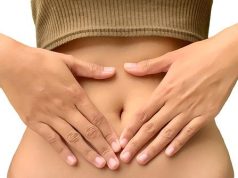In a world where wellness trends ebb and flow like the tides, few concepts have captured the public imagination quite like detoxing. Promising to cleanse the body of impurities and rejuvenate the spirit, detox diets and regimens have become a staple in health-conscious circles. Yet, amidst the kaleidoscope of juices, teas, and fasting protocols, a question lingers: is detoxing a genuine necessity for our well-being, or is it simply a myth spun from the threads of modern marketing? This article embarks on an exploration of detoxing, sifting through the claims and counterclaims to uncover whether this practice is a vital health intervention or merely an illusion. As we delve into the science, history, and psychology behind detoxing, prepare to challenge assumptions and discover where truth meets myth in the pursuit of health.
Understanding the Origins and Appeal of Detoxing
In recent years, the concept of detoxing has captivated the attention of health enthusiasts and wellness seekers alike. Detoxing refers to a variety of practices and diets aimed at removing toxins from the body, often promising renewed vitality and improved health. The origins of detoxing are deeply rooted in ancient traditions. For instance, Ayurvedic medicine and Traditional Chinese Medicine have long included detoxification methods, such as fasting and the use of herbs, as part of their holistic approach to health.
The appeal of detoxing lies in its promise of quick and tangible results, especially in a world where instant gratification is often sought. People are drawn to the idea of cleansing their bodies from the inside out, hoping for benefits such as:
- Increased energy levels
- Improved digestion
- Clearer skin
- Enhanced mental clarity
However, the question remains whether these benefits are backed by science or if they are simply a product of the placebo effect. The allure of a fresh start, combined with anecdotal success stories, continues to fuel the detox industry, making it a topic of both intrigue and skepticism.

Examining Scientific Evidence and Expert Opinions
When delving into the realm of detoxification, it’s crucial to assess both the scientific evidence and expert opinions. While many wellness gurus advocate for detox diets, promising a myriad of health benefits, scientists often take a more skeptical stance. Research on detox diets is limited, and many experts argue that the human body is already equipped with sophisticated systems—the liver, kidneys, and intestines—that naturally eliminate toxins without the need for special diets or supplements.
- Scientific Community: A significant portion of the scientific community maintains that detox diets lack empirical support. They often point out that no substantial evidence proves these diets improve liver function or effectively eliminate toxins.
- Nutritionists: Some nutritionists suggest that instead of focusing on detox diets, individuals should aim for balanced nutrition and hydration to support the body’s natural detoxification processes.
- Health Organizations: Major health organizations typically do not endorse detox diets, emphasizing that a balanced diet rich in fruits, vegetables, and whole grains is more beneficial for overall health.
Ultimately, the debate around detoxing remains vibrant, with experts urging consumers to critically evaluate the claims made by detox diet proponents and to prioritize scientifically-backed health practices.

Potential Benefits and Risks of Detox Practices
Engaging in detox practices often promises a multitude of benefits, such as increased energy levels, improved digestion, and a clearer mind. Advocates suggest that detoxing can help eliminate toxins from the body, leading to a more vibrant and rejuvenated feeling. Some potential benefits include:
- Enhanced Mental Clarity: By focusing on nutrient-rich foods and hydration, detoxing might support cognitive function and clarity.
- Weight Management: A detox may kickstart healthier eating habits and support weight loss efforts.
- Improved Skin Health: Some people report clearer and more radiant skin as a result of detox diets.
However, it’s crucial to weigh these benefits against the potential risks. Critics argue that detoxing can sometimes lead to nutrient deficiencies, fatigue, and even a weakened immune system. The risks associated with detox practices include:
- Nutrient Imbalance: Restrictive detox diets might lack essential nutrients, leading to deficiencies.
- Digestive Issues: Sudden dietary changes can cause bloating, cramps, or diarrhea.
- Energy Fluctuations: Limiting calorie intake may result in fatigue or mood swings.

Practical Tips for Supporting Your Bodys Natural Detoxification
While the body is naturally equipped to handle detoxification, there are several ways you can support this process and enhance your well-being. Here are some practical tips:
- Stay Hydrated: Water plays a crucial role in flushing out toxins. Aim for at least 8-10 glasses a day to help your kidneys function optimally.
- Eat Whole Foods: Incorporate a variety of fruits, vegetables, whole grains, and lean proteins into your diet. Foods rich in fiber, such as leafy greens and berries, can aid in digestion and toxin removal.
- Exercise Regularly: Physical activity not only helps in maintaining a healthy weight but also boosts circulation and encourages sweating, which can help eliminate toxins through the skin.
- Get Enough Sleep: Adequate rest allows your body to repair and regenerate. Aim for 7-9 hours of quality sleep to support your body’s natural detox processes.
- Limit Processed Foods: Reduce your intake of foods high in sugar, salt, and unhealthy fats. These can burden your liver and hinder its ability to detoxify.
By incorporating these simple practices into your daily routine, you can support your body’s natural detoxification and promote overall health.






























